- Home
- D. H. Lawrence
Life with a Capital L Page 25
Life with a Capital L Read online
Page 25
And the relation between man and woman will change for ever, and will for ever be the new central clue to human life. It is the relation itself which is the quick and the central clue to life, not the man, nor the woman, nor the children that result from the relationship, as a contingency.
It is no use thinking you can put a stamp on the relation between man and woman, to keep it in the status quo. You can’t. You might as well try to put a stamp on the rainbow or the rain.
As for the bond of love, better put it off when it galls. It is an absurdity, to say that men and women must love. Men and women will be for ever subtly and changingly related to one another; no need to yoke them with any ‘bond’ at all. The only morality is to have man true to his manhood, woman to her womanhood, and let the relationship form of itself, in all honour. For it is, to each, life itself.
If we are going to be moral, let us refrain from driving pegs through anything, either through each other or through the third thing, the relationship, which is for ever the ghost of both of us. Every sacrificial crucifixion needs five pegs, four short ones and a long one, each one an abomination. But when you try to nail down the relationship itself, and write over it Love instead of This is the King of the Jews, then you can go on putting in nails for ever. Even Jesus called it the Holy Ghost, to show you that you can’t lay salt on its tail.
The novel is a perfect medium for revealing to us the changing rainbow of our living relationships. The novel can help us to live, as nothing else can: no didactic Scripture, anyhow. If the novelist keeps his thumb out of the pan.
But when the novelist has his thumb in the pan, the novel becomes an unparalleled perverter of men and women. To be compared only, perhaps, to that great mischief of sentimental hymns, like ‘Lead, Kindly Light,’ which have helped to rot the marrow in the bones of the present generation.
The Novel (1925)
Somebody says the novel is doomed. Somebody else says it is the green bay tree getting greener. Everybody says something, so why shouldn’t I!
Mr Santayana sees the modern novel expiring because it is getting so thin; which means, Mr Santayana is bored.
I am rather bored myself. It becomes harder and harder to read the whole of any modern novel. One reads a bit, and knows the rest; or else one doesn’t want to know any more.
This is sad. But again, I don’t think it’s the novel’s fault. Rather the novelists’.
You can put anything you like in a novel. So why do people always go on putting the same thing? Why is the vol au vent always chicken! Chicken vol au vents may be the rage. But who sickens first shouts first for something else.
The novel is a great discovery: far greater than Galileo’s telescope or somebody else’s wireless. The novel is the highest form of human expression so far attained. Why? Because it is so incapable of the absolute.
In a novel, everything is relative to everything else, if that novel is art at all. There may be didactic bits, but they aren’t the novel. And the author may have didactic ‘purpose’ up his sleeve. Indeed most great novelists have, as Tolstoi had his Christian-socialism, and Hardy his pessimism, and Flaubert his intellectual desperation. But even a didactic purpose so wicked as Tolstoi’s or Flaubert’s cannot put to death the novel.
You can tell me, Flaubert had a ‘philosophy’, not ‘purpose’. But what is a novelist’s philosophy but a purpose on a rather higher level? And since every novelist who amounts to anything has a philosophy – even Balzac – any novel of importance has a purpose. If only the ‘purpose’ be large enough, and not at outs with the passional inspiration.
Vronsky sinned, did he? But also the sinning was a consummation devoutly to be wished. The novel makes that obvious: in spite of old Leo Tolstoi. And the would-be-pious Prince in Resurrection is a muff, with his piety that nobody wants or believes in.
There you have the greatness of the novel itself. It won’t let you tell didactic lies, and put them over. Nobody in the world is anything but delighted when Vronsky gets Anna Karénina. Then what about the sin? – Why, when you look at it, all the tragedy comes from Vronsky’s and Anna’s fear of society. The monster was social, not phallic at all. They couldn’t live in the pride of their sincere passion, and spit in Mother Grundy’s eye. And that, that cowardice, was the real ‘sin’. The novel makes it obvious, and knocks all old Leo’s teeth out. ‘As an officer I am still useful. But as a man, I am a ruin,’ says Vronsky – or words to that effect. Well what a skunk, collapsing as a man and a male, and remaining merely as a social instrument; an ‘officer’, God love us! – merely because people at the opera turn backs on him! As if people’s backs weren’t preferable to their faces, anyhow!
And old Leo tries to make out it was all because of the phallic sin. Old liar! Because where would any of Leo’s books be, without the phallic splendour? And then to blame the column of blood, which really gave him all his life riches! The Judas! Cringe to a mangy, bloodless Society, and try to dress up that dirty old Mother Grundy in a new bonnet and face-powder of Christian-Socialism. Brothers indeed! Sons of a castrated Father!
The novel itself gives Vronsky a kick in the behind, and knocks old Leo’s teeth out, and leaves us to learn.
It is such a bore that nearly all great novelists have a didactic purpose, otherwise a philosophy, directly opposite to their passional inspiration. In their passional inspiration, they are all phallic worshippers. From Balzac to Hardy, it is so. Nay, from Apuleius to E. M. Forster. Yet all of them, when it comes to their philosophy, or what they think-they-are, they are all crucified Jesuses. What a bore! And what a burden for the novel to carry!
But the novel has carried it. Several thousands of thousands of lamentable crucifixions of self-heroes and self-heroines. Even the silly duplicity of Resurrection, and the wickeder duplicity of Salammbô, with that flayed phallic Matho, tortured upon the Cross of a gilt Princess.
You can’t fool the novel. Even with man crucified upon a woman: his ‘dear cross’. The novel will show you how dear she was: dear at any price. And it will leave you with a bad taste of disgust against these heroes who turn their women into a ‘dear cross’, and ask for their own crucifixion.
You can fool pretty nearly every other medium. You can make a poem pietistic, and still it will be a poem. You can write Hamlet in drama: if you wrote him in a novel, he’d be half comic, or a trifle suspicious: a suspicious character, like Dostoevsky’s Idiot. Somehow, you sweep the ground a bit too clear in the poem or the drama, and you let the human Word fly a bit too freely. Now in a novel there’s always a tom-cat, a black tom-cat that pounces on the white dove of the Word, if the dove doesn’t watch it; and there is a banana-skin to trip on; and you know there is a water-closet on the premises. All these things help to keep the balance.
If, in Plato’s Dialogues, somebody had suddenly stood on his head and given smooth Plato a kick in the wind, and set the whole school in an uproar, then Plato would have been put into a much truer relation to the universe. Or if, in the midst of the Timaeus, Plato had only paused to say: ‘And now, my dear Cleon – (or whoever it was) – I have a bellyache, and must retreat to the privy: this too is part of the Eternal Idea of man,’ then we never need have fallen so low as Freud.
And if, when Jesus told the rich man to take all he had and give it to the poor, the rich man had replied: ‘All right, old sport! You are poor, aren’t you? Come on, I’ll give you a fortune. Come on!’ Then a great deal of snivelling and mistakenness would have been spared us all, and we might never have produced a Marx and a Lenin. If only Jesus had accepted the fortune!
Yes, it’s a pity of pities that Matthew, Mark, Luke, and John didn’t write straight novels. They did write novels; but a bit crooked. The Evangels are wonderful novels, by authors ‘with a purpose’. Pity there’s so much Sermon-on-the-Mounting.
Matthew, Mark, Luke, and John
Went to bed with their breeches on! –
as every child knows. Ah, if only they’d taken them off!
Greater novels, to my mind, are the books of the Old Testament, Genesis, Exodus, Samuel, Kings, by authors whose purpose was so big, it didn’t quarrel with their passionate inspiration. The purpose and the inspiration were almost one. Why, in the name of everything bad, the two ever should have got separated, is a mystery! But in the modern novel they are hopelessly divorced. When there is any inspiration there, to be divorced from.
This, then, is what is the matter with the modern novel. The modern novelist is possessed, hag-ridden, by such a stale old ‘purpose’, or idea-of-himself, that his inspiration succumbs. Of course he denies having any didactic purpose at all: because a purpose is supposed to be like catarrh, something to be ashamed of. But he’s got it. They’ve all got it: the same snivelling purpose.
They’re all little Jesuses in their own eyes, and their ‘purpose’ is to prove it. Oh Lord! – Lord Jim! Sylvestre Bonnard! If Winter Comes! Main Street! Ulysses! Pan! They are all pathetic or sympathetic or antipathetic little Jesuses accomplis or manqués. And there is a heroine who is always ‘pure’, usually, nowadays, on the muck-heap! Like the Green Hatted Woman. She is all the time at the feet of Jesus, though her behaviour there may be misleading. Heaven knows what the Saviour really makes of it: whether she’s a Green Hat or a Constant Nymph (eighteen months of constancy, and her heart failed), or any of the rest of ’em. They are all, heroes and heroines, novelists and she-novelists, little Jesuses or Jesusesses. They may be wallowing in the mire: but then didn’t Jesus harrow Hell! A la bonne heure!
Oh, they are all novelists with an idea of themselves! Which is a ‘purpose’, with a vengeance! For what a weary, false, sickening idea it is nowadays! The novel gives them away. They can’t fool the novel.
Now really, it’s time we left off insulting the novel any further. If your purpose is to prove your own Jesus qualifications, and the thin stream of your inspiration is ‘sin’, then dry up, for the interest is dead. Life as it is! What’s the good of pretending that the lives of a set of tuppenny Green Hats and Constant Nymphs is Life-as-it-is, when the novel itself proves that all it amounts to is life as it is isn’t life, but a sort of everlasting and intricate and boring habit: of Jesus peccant and Jesusa peccante.
These wearisome sickening little personal novels! After all, they aren’t novels at all. In every great novel, who is the hero all the time? Not any of the characters, but some unnamed and nameless flame behind them all. Just as God is the pivotal interest in the books of the Old Testament. But just a trifle too intimate, too frère et cochon, there. In the great novel, the felt but unknown flame stands behind all the characters, and in their words and gestures there is a flicker of the presence. If you are too personal, too human, the flicker fades out, leaving you with something awfully lifelike, and as lifeless as most people are.
We have to choose between the quick and the dead. The quick is God-flame, in everything. And the dead is dead. In this room where I write, there is a little table that is dead: it doesn’t even weakly exist. And there is a ridiculous little iron stove, which for some unknown reason is quick. And there is an iron wardrobe trunk, which for some still more mysterious reason is quick. And there are several books, whose mere corpus is dead, utterly dead and non-existent. And there is a sleeping cat, very quick. And a glass lamp, alas, is dead.
What makes the difference? Quién sabe! But difference there is. And I know it.
And the sum and source of all quickness we will call God. And the sum and total of all deadness we may call human.
And if one tries to find out wherein the quickness of the quick lies, it is in a certain weird relationship between that which is quick and – I don’t know; perhaps all the rest of things. It seems to consist in an odd sort of fluid, changing, grotesque or beautiful relatedness. That silly iron stove somehow belongs. Whereas this thin-shanked table doesn’t belong. It is a mere disconnected lump, like a cut-off finger.
And now we see the great, great merits of the novel. It can’t exist without being ‘quick’. The ordinary unquick novel, even if it be a best seller, disappears into absolute nothingness, the dead burying their dead with surprising speed. For even the dead like to be tickled. But the next minute, they’ve forgotten both the tickling and the tickler.
Secondly, the novel contains no didactic absolute. All that is quick, and all that is said and done by the quick, is in some way godly. So that Vronsky’s taking Anna Karenina we must count godly, since it is quick. And that Prince in Resurrection, following the convict girl, we must count dead. The convict train is quick and alive. But that would-be-expiatory Prince is as dead as lumber.
The novel itself lays down these laws for us, and we spend our time evading them. The man in the novel must be ‘quick’. And this means one thing, among a host of unknown meaning: it means he must have a quick relatedness to all the other things in the novel: snow, bed-bugs, sunshine, the phallus, trains, silk-hats, cats, sorrow, people, food, diphtheria, fuchsias, stars, ideas, God, tooth-paste, lightning, and toilet-paper. He must be in quick relation to all these things. What he says and does must be relative to them all.
And this is why Pierre, for example, in War and Peace, is more dull and less quick than Prince André. Pierre is quite nicely related to ideas, tooth-paste, God, people, foods, trains, silk-hats, sorrow, diphtheria, stars. But his relation to snow and sunshine, cats, lightning and the phallus, fuchsias and toilet-paper, is sluggish and mussy. He’s not quick enough.
The really quick, Tolstoi loved to kill them off or muss them over. Like a true Bolshevist. One can’t help feeling Natasha is rather mussy and unfresh, married to that Pierre.
Pierre was what we call ‘so human.’ Which means ‘so limited.’ Men clotting together into social masses in order to limit their individual liabilities: this is humanity. And this is Pierre. And this is Tolstoi, the philosopher with a very nauseating Christian-brotherhood idea of himself. Why limit man to a Christian-brotherhood? I myself, I could belong to the sweetest Christian-brotherhood one day, and ride after Attila with a raw beefsteak for my saddle-cloth, to see the red cock crow in flame over all Christendom, next day.
And that is man! That, really, was Tolstoi. That, even, was Lenin, God in the machine of Christian-brotherhood, that hashes men up into social sausage-meat.
Damn all absolutes. Oh damn, damn, damn all absolutes! I tell you, no absolute is going to make the lion lie down with the lamb: unless, like the limerick, the lamb is inside.
They returned from the ride
With lamb Leo inside
And a smile on the face of the tiger!
Sing fol-di-lol-lol!
Fol-di-lol-lol!
Fol-di-lol-ol-di-lol-olly!
For man, there is neither absolute nor absolution. Such things should be left to monsters like the right-angled triangle, which does only exist in the ideal consciousness. A man can’t have a square on his hypotenuse, let him try as he may.
Ay! Ay! Ay! – Man handing out absolutes to man, as if we were all books of geometry with axioms, postulates and definitions in front. God with a pair of compasses! Moses with a set square! Man a geometric bifurcation, not even a radish!
Holy Moses!
‘Honour they father and thy mother!’ That’s awfully cute! But supposing they are not honourable? How then, Moses?
Voice of thunder from Sinai: ‘Pretend to honour them!’
‘Love thy neighbour as thyself.’
Alas, my neighbour happens to be mean and detestable.
Voice of the lambent Dove, cooing: ‘Put it over him, that you love him.’
Talk about the cunning of serpents! I never saw even a serpent kissing his instinctive enemy.
Pfui! I wouldn’t blacken my mouth, kissing my neighbour, who, I repeat, to me is mean and detestable.
Dove, go home!
The Goat and Compasses, indeed!
Everything is relative. Every Commandment that ever issued out of the mouth of God or man, is strictly relative: adhering to the particular time, place and
circumstance.
And this is the beauty of the novel; everything is true in its own relationship, and no further.
For the relatedness and interrelatedness of all things flows and changes and trembles like a stream, and like a fish in the stream the characters in the novel swim and drift and float and turn belly-up when they’re dead.
So, if a character in a novel wants two wives – or three – or thirty: well, that is true of that man, at that time, in that circumstance. It may be true of other men, elsewhere and elsewhen. But to infer that all men at all times want two, three, or thirty wives; or that the novelist himself is advocating furious polygamy; is just imbecility.
It has been just as imbecile to infer that, because Dante worshipped a remote Beatrice, every man, all men, should go worshipping remote Beatrices.
And that wouldn’t have been so bad, if Dante had put the thing in its true light. Why do we slur over the actual fact that Dante had a cosy bifurcated wife in his bed, and a family of lusty little Dantinos? Petrarch, with his Laura in the distance, had twelve little legitimate Petrarchs of his own, between his knees. Yet all we hear is Laura! Laura! Beatrice! Beatrice! Distance! Distance!
What bunk! Why didn’t Dante and Petrarch chant in chorus:
Then there would have been an honest relation between all the bunch. Nobody grudges the gents their spiritual concubines. But keeping a wife and family – twelve children – up one’s sleeve, has always been recognized as a dirty trick.
Which reveals how immoral the absolute is! Invariably keeping some vital fact dark! Dishonourable!
Here we come upon the third essential quality of the novel. Unlike the essay, the poem, the drama, the book of philosophy, or the scientific treatise: all of which may beg the question, when they don’t downright filch it; the novel inherently is and must be:
Quick.
Interrelated in all its parts, vitally, organically.
Honourable.

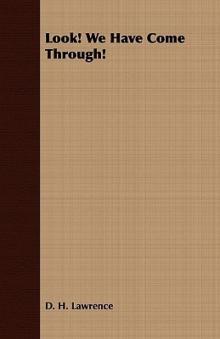 Look! We Have Come Through!
Look! We Have Come Through!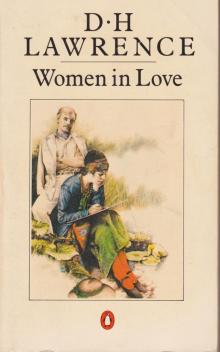 Women in Love
Women in Love The Ladybird
The Ladybird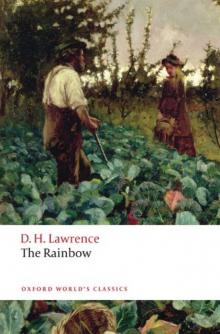 The Rainbow
The Rainbow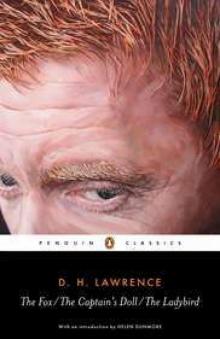 The Captain's Dol
The Captain's Dol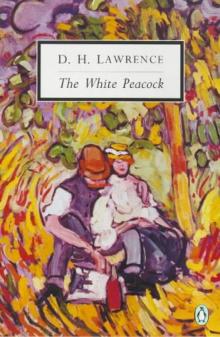 The White Peacock
The White Peacock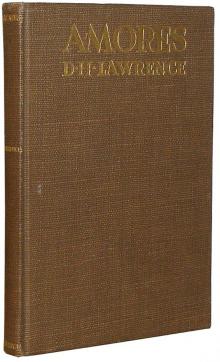 Amores
Amores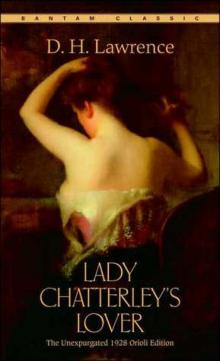 Lady Chatterley's Lover
Lady Chatterley's Lover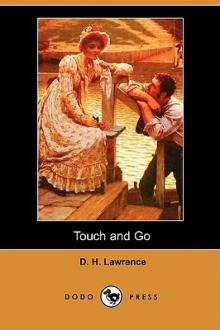 Touch and Go
Touch and Go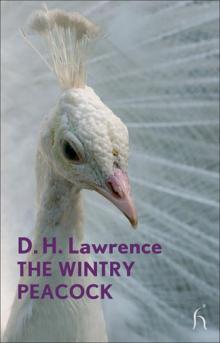 The Wintry Peacock
The Wintry Peacock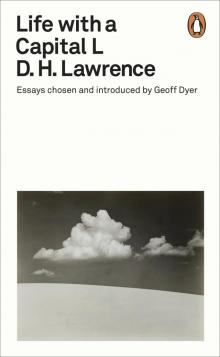 Life with a Capital L
Life with a Capital L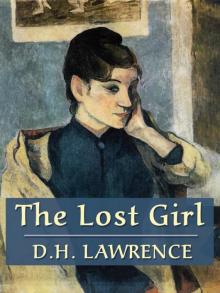 The Lost Girl
The Lost Girl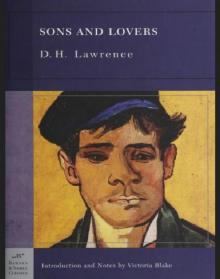 Sons and Lovers
Sons and Lovers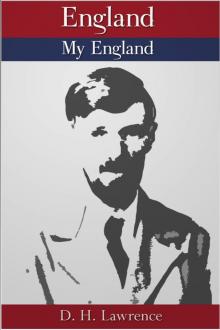 England, My England
England, My England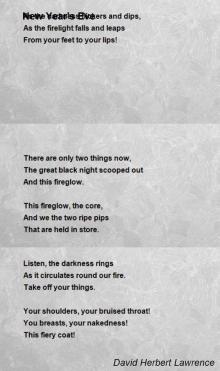 New Poems
New Poems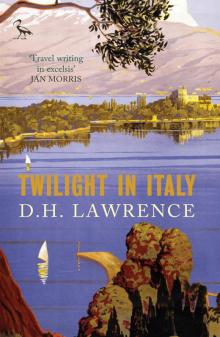 Twilight in Italy
Twilight in Italy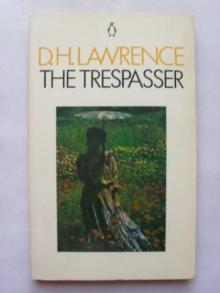 The Trespasser
The Trespasser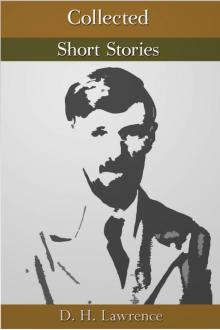 The Collected Short Stories
The Collected Short Stories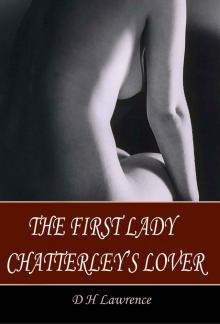 The First Lady Chatterley's Lover
The First Lady Chatterley's Lover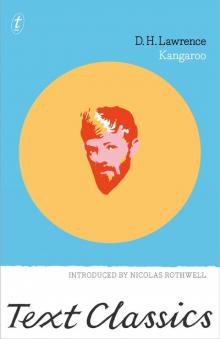 Kangaroo
Kangaroo Bay
Bay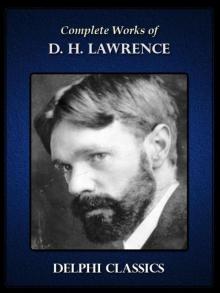 Complete Works of D.H. Lawrence
Complete Works of D.H. Lawrence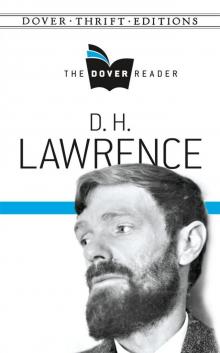 D H Lawrence- The Dover Reader
D H Lawrence- The Dover Reader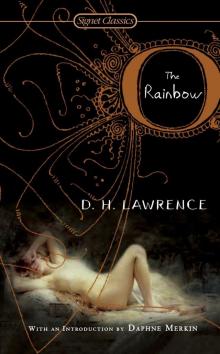 The Rainbow (100th Anniversary ed.)
The Rainbow (100th Anniversary ed.)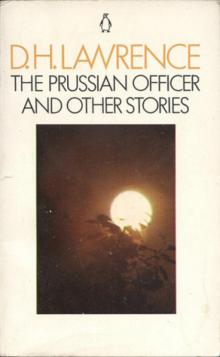 The Prussian Officer
The Prussian Officer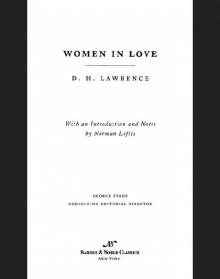 Women in Love (Barnes & Noble Classics Series)
Women in Love (Barnes & Noble Classics Series)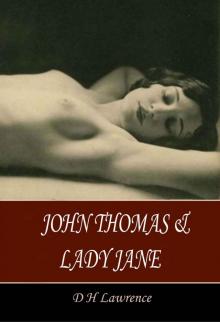 John Thomas and Lady Jane
John Thomas and Lady Jane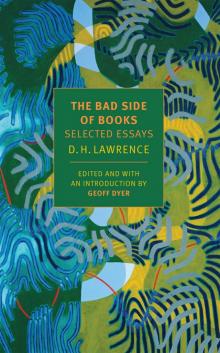 The Bad Side of Books
The Bad Side of Books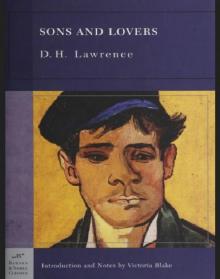 Sons and Lovers (Barnes & Noble Classics Series)
Sons and Lovers (Barnes & Noble Classics Series) Selected Stories
Selected Stories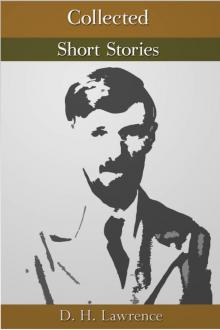 Collected Short Stories
Collected Short Stories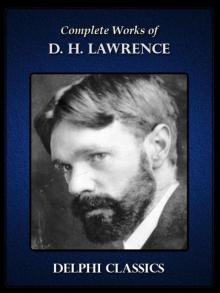 Complete Works of D.H. Lawrence (Illustrated)
Complete Works of D.H. Lawrence (Illustrated)